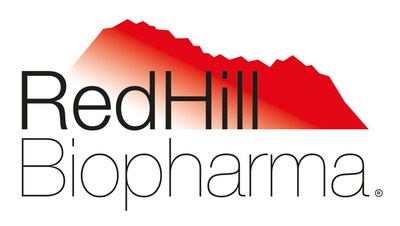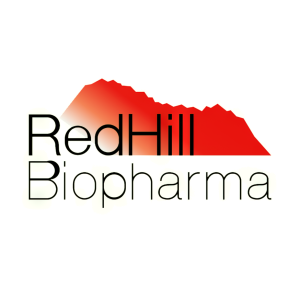RedHill's Opaganib Selected for Evaluation by BARDA and NIH Countermeasures Programs
- None.
- None.
Insights
The selection of opaganib for evaluation by the U.S. government's Chem MCM Program and CCRP signifies a strategic move into a niche but critical area of biodefense. The drug's potential to serve as a countermeasure against Sulfur Mustard, a chemical warfare agent, aligns with national security interests and public health preparedness. This development could lead to increased funding and support for RedHill Biopharma, as government contracts for MCMs typically involve substantial investment.
Furthermore, the dual utility of opaganib, already under consideration for Acute Radiation Syndrome, suggests cost-effectiveness in research and development. This could enhance investor confidence in RedHill's portfolio diversification and its ability to manage regulatory pathways. However, it is essential to monitor the FDA's stance, as approval is a pivotal milestone that would directly influence the stock's performance. The company's ability to navigate the complex regulatory environment will be crucial for its valuation.
Opaganib's role as an SPHK2 inhibitor places it at the forefront of targeted therapies in sphingolipid metabolism, a pathway implicated in various pathological conditions. Its evaluation for chemical countermeasures introduces a new application outside of its current indications, which include COVID-19, ARDS and oncology. The versatility of opaganib may reflect positively on RedHill's research capabilities and its potential for pipeline expansion.
It is noteworthy that the efficacy of opaganib against sub-chronic fibrosis and ARDS due to Sulfur Mustard will be assessed. These conditions represent significant challenges in chemical injury management and a successful countermeasure could lead to substantial demand within military and strategic stockpiles. The long-term implications for RedHill Biopharma hinge on successful clinical outcomes that demonstrate efficacy and safety in these new indications.
RedHill Biopharma's stock (Nasdaq: RDHL) may experience increased volatility following this announcement due to anticipated government contracts and the potential broadening of opaganib's market. The financial implications of entering the biodefense space are substantial, considering the long-term revenue streams from government stockpiling and the possibility of exclusivity in supply contracts. Investors should consider the historical performance of biotech firms engaged in MCM development, which often sees an uptick in valuation upon positive trial outcomes and government endorsements.
However, the inherent risks of drug development, especially in a high-stakes area such as biodefense, must be weighed against the potential returns. The cost of clinical trials and the uncertainty of FDA approval present financial risks that could impact short-term liquidity and long-term profitability. Stakeholders should keep an eye on RedHill's financial health, R&D expenditure and cash flow to assess the sustainability of its business model in light of these new developments.
The
Opaganib, a novel oral small molecule, is the first sphingosine kinase-2 (SPHK2) inhibitor investigational drug targeting sphingolipid metabolism to be evaluated as a chemical countermeasure
Selection for the therapeutic testing/screening program, following opaganib's previous acceptance into the Radiation and Nuclear Countermeasures Program (RNCP) for Acute Radiation Syndrome (ARS), provides the potential to see broad activity across both radiation and Sulfur Mustard injuries
Opaganib has five-year shelf-life and is easy to administer and distribute for use against potential chemical weapon attack, if approved by the
Opaganib is being developed for multiple additional indications, including COVID-19, acute respiratory distress syndrome (ARDS) and oncology

The Chem MCM Program is administered by the Biomedical Advanced Research and Development Authority (BARDA), a component of the Administration for Strategic Preparedness and Response (ASPR) within the
Sulfur Mustard is a powerful alkylating chemical warfare agent. Exposure to Sulfur Mustard causes extensive skin blistering and severe injury to the eyes, lungs, and multiple organs, causing potentially fatal damage. Primarily affecting the lungs, Sulfur Mustard poisoning can result in symptoms such as acute lung injury, acute respiratory distress syndrome, bronchiolitis obliterans, fibrosis, and subsequent associated infections.
"With the alarming increase in global geo-political instability, the opportunity to evaluate opaganib as a potential vital protective agent against chemical attack is inspiring. We, and our development partner, Apogee Biotechnology Corporation, are delighted to partner with the NIH/NIAID, ASPR/BARDA, and Battelle in our efforts to make a significant difference in this area of huge medical and societal need," said Dror Ben-Asher, RedHill's Chief Executive Officer. "Opaganib is the first selective sphingosine kinase-2 (SPHK2) inhibitor investigational drug targeting sphingolipid metabolism to be evaluated as a chemical countermeasure. Its selection for the
Opaganib, a novel oral, small molecule pill with a five-year shelf-life, is easy to administer and distribute for use against potential chemical weapon attack, if approved by the FDA.
About Opaganib (ABC294640)
Opaganib, a proprietary investigational host-directed and potentially broad-acting drug, is a first-in-class, orally administered sphingosine kinase-2 (SPHK2) selective inhibitor with anticancer, anti-inflammatory and antiviral activity, targeting multiple potential diseases, including gastrointestinal acute radiation syndrome (GI-ARS), COVID-19, other viruses as part of pandemic preparedness, and cholangiocarcinoma (bile duct cancer).
Opaganib's host-directed action is thought to work through the inhibition of multiple pathways, the induction of autophagy and apoptosis, and disruption of viral replication, through simultaneous inhibition of three sphingolipid-metabolizing enzymes in human cells (SPHK2, DES1 and GCS).
Opaganib was selected by the
Opaganib has demonstrated antiviral activity against SARS-CoV-2, multiple variants, and several other viruses, such as Influenza A. Opaganib also recently demonstrated a distinct synergistic effect when combined individually with remdesivir (Veklury®, Gilead Sciences Inc., Nasdaq: GILD), significantly improving potency while maintaining cell viability, in a
Being host-targeted, and based on data accumulated to date, opaganib is expected to maintain effect against emerging viral variants. In prespecified analyses of Phase 2/3 clinical data in hospitalized patients with moderate to severe COVID-19, oral opaganib demonstrated improved viral RNA clearance, faster time to recovery and significant mortality reduction in key patient subpopulations versus placebo on top of standard of care. Opaganib has demonstrated its safety and tolerability profile in more than 470 people in multiple clinical studies and expanded access use. Data from the opaganib global Phase 2/3 study was published in medRxiv.
Opaganib has received Orphan Drug designation from the FDA for the treatment of cholangiocarcinoma and has undergone studies in advanced cholangiocarcinoma (Phase 2a) and prostate cancer. Opaganib also has a Phase 1 chemoradiotherapy study protocol ready for FDA-IND submission.
Opaganib has also shown positive preclinical results in renal fibrosis, and has the potential to target multiple oncology, radioprotection, viral, inflammatory, and gastrointestinal indications.
About Battelle
Every day, the people of Battelle apply science and technology to solving what matters most. At major technology centers and national laboratories around the world, Battelle conducts research and development, designs and manufactures products, and delivers critical services for government and commercial customers. Headquartered in
About RedHill Biopharma
RedHill Biopharma Ltd. (Nasdaq: RDHL) is a specialty biopharmaceutical company primarily focused on gastrointestinal and infectious diseases. RedHill promotes the gastrointestinal drugs Talicia®, for the treatment of Helicobacter pylori (H. pylori) infection in adults[3], and Aemcolo®, for the treatment of travelers' diarrhea in adults[4]. RedHill's key clinical late-stage development programs include: (i) opaganib (ABC294640), a first-in-class oral broad-acting, host-directed SPHK2 selective inhibitor with potential for pandemic preparedness, targeting multiple indications with a
RedHill is open to opportunities to acquire revenue generating assets in various indications, aligned to our strategic direction. Trading in RedHill's shares, ADSs and Warrants is regulated by the Securities and Exchange Commission (SEC), and the Company is committed to work in compliance with all relevant SEC and FDA regulations and requirements.
More information about the Company is available at www.redhillbio.com / twitter.com/RedHillBio.
Forward Looking Statements
This press release contains "forward-looking statements" within the meaning of the Private Securities Litigation Reform Act of 1995 and may discuss investment opportunities, stock analysis, financial performance, investor relations, and market trends. Such statements, including, but not limited to, statements regarding the intended use of net proceeds from the offering, may be preceded by the words "intends," "may," "will," "plans," "expects," "anticipates," "projects," "predicts," "estimates," "aims," "believes," "hopes," "potential" or similar words and include statements regarding the risk that the Company will not comply with the listing requirements of the Nasdaq Capital Market ("Nasdaq") to remain listed for trading on Nasdaq, the addition of new revenue generating products, out-licensing of the Company's development pipeline assets, timing of opaganib's development for Acute Radiation Syndrome, non-dilutive development funding from RHB-107 and its inclusion in a key platform study. Forward-looking statements are based on certain assumptions and are subject to various known and unknown risks and uncertainties, many of which are beyond the Company's control and cannot be predicted or quantified, and consequently, actual results may differ materially from those expressed or implied by such forward-looking statements. Such risks and uncertainties include, without limitation, market and other conditions, the risk that opaganib's evaluation for Sulfur Mustard exposure may not be completed or, if completed, may not be successful; the addition of new revenue generating products or out-licensing transactions will not occur; the risk that acceptance onto the RNCP Product Development Pipeline will not guarantee ongoing development or that any such development will not be completed or successful; the risk that the FDA does not agree with the Company's proposed development plans for opaganib for any indication, the risk that observations from preclinical studies are not indicative or predictive of results in clinical trials; the risk that the FDA pre-study requirements will not be met and/or that the Phase 3 study of RHB-107 in COVID-19 outpatients will not be approved to commence or if approved, will not be completed or, should that be the case, that we will not be successful in obtaining alternative non-dilutive development funding for RHB-107, the risk that HB-107's late-stage development for non-hospitalized COVID-19 will not benefit from the resources redirected from the terminated RHB-204 Phase 3 study, that the Phase 2/3 COVID-19 study for RHB-107 may not be successful and, even if successful, such studies and results may not be sufficient for regulatory applications, including emergency use or marketing applications, and that additional COVID-19 studies for opaganib and RHB-107 are likely to be required, as well as risks and uncertainties associated with the risk that the Company will not successfully commercialize its products; as well as risks and uncertainties associated with (i) the initiation, timing, progress and results of the Company's research, manufacturing, pre-clinical studies, clinical trials, and other therapeutic candidate development efforts, and the timing of the commercial launch of its commercial products and ones it may acquire or develop in the future; (ii) the Company's ability to advance its therapeutic candidates into clinical trials or to successfully complete its pre-clinical studies or clinical trials or the development of a commercial companion diagnostic for the detection of MAP; (iii) the extent and number and type of additional studies that the Company may be required to conduct and the Company's receipt of regulatory approvals for its therapeutic candidates, and the timing of other regulatory filings, approvals and feedback; (iv) the manufacturing, clinical development, commercialization, and market acceptance of the Company's therapeutic candidates and Talicia®; (v) the Company's ability to successfully commercialize and promote Talicia® and Aemcolo®; (vi) the Company's ability to establish and maintain corporate collaborations; (vii) the Company's ability to acquire products approved for marketing in the
Company contact:
Adi Frish
Chief Corporate & Business Development Officer
RedHill Biopharma
+972-54-6543-112
adi@redhillbio.com
Category: Financials
[1] Battelle is a leading, independent, nonprofit organization that partners with government, and others, to deliver critical scientific services.
[2] Opaganib is an investigational new drug, not available for commercial distribution.
[3] Talicia® (omeprazole magnesium, amoxicillin and rifabutin) is indicated for the treatment of H. pylori infection in adults. For full prescribing information see: www.Talicia.com.
[4] Aemcolo® (rifamycin) is indicated for the treatment of travelers' diarrhea caused by noninvasive strains of Escherichia coli in adults. For full prescribing information see: www.Aemcolo.com.
Logo - https://mma.prnewswire.com/media/1334141/RedHill_Biopharma_Logo.jpg
![]() View original content:https://www.prnewswire.com/news-releases/redhills-opaganib-selected-for-evaluation-by-barda-and-nih-countermeasures-programs-302079686.html
View original content:https://www.prnewswire.com/news-releases/redhills-opaganib-selected-for-evaluation-by-barda-and-nih-countermeasures-programs-302079686.html
SOURCE RedHill Biopharma Ltd.







